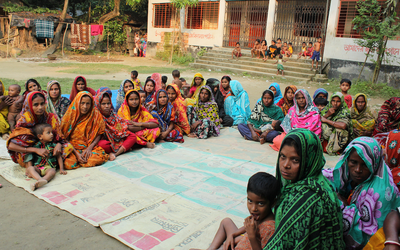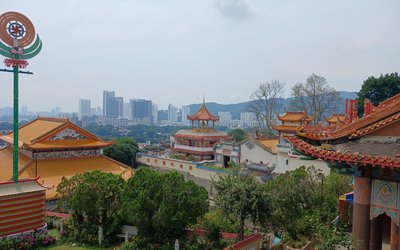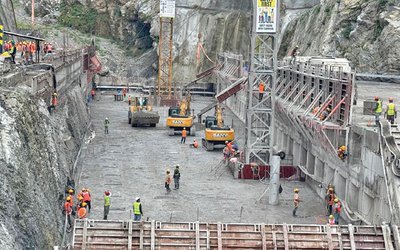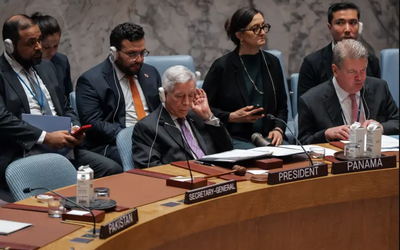Recent discussions revolving around the current system of international organization and governance, followed by multiple proposals for change in varying degrees of intensity, raise serious concerns amongst international lawyers pertaining to the eventuality of an overhaul of the ‘form of multilateralism’ practiced today and which has prevailed for decades, with many good results.
Traditional Multilateralism in Question
The UN system, conceived in 1945, largely following a compromise amongst the victors of the Second World War, is now being put under pressure for change. The tumultuous political and financial environment in today’s world is demanding a new vision for international relations. The actions, counteractions, and reactions of those holding the purse along with the key to the functioning of the different institutions within the system substantiate the observation. In addition, those criticizing the inherent problems of governance, power-sharing and limited scope of work, as well as those regularly over-advised and under-nourished clients, make the situation worse and contribute to further confusion. All seem so desperate that an undefinable desire to go beyond the standards that have been, so far, observed in inter-state relations is emerging. All see an opportunity to score points and position themselves to become more visible and relevant.
The UN system instilled optimism and played a significant role in preventing new world wars, in structuring peacekeeping (thus reducing the potential of new regional wars), and in strengthening international cooperation. This international cooperation was facilitated by another parallel system conceived during the same decade, which focused on economic development and financial discipline as designed at the Bretton Woods Conference and on trade liberalism established by the GATT system (later morphed into WTO). The political side of it (the geopolitical turf delimitation) was, on the other hand, secured more pointedly through the Accord of Yalta, as well as through regional agreements such as those of Helsinki. All these now are now being questioned and perhaps on the verge of being partially dismantled, both de jure and de facto.
The United States, the most important single player in the international community, propelled by internal political dynamics and electoral commitments, decided to get out of several international organizations, or reduce its participation substantially. Items such as the financing of NATO’s operational costs, Ukraine’s membership in NATO, or more broadly the uncertainty about the perceived and real effects of trade war triggered by the change of tariff structure on most countries, some critical ones, also played a limited role in the decision. Certainly, this is not the first time that the United States has made a decision to exit an international institution. But, this time, the impact appears quite intense and broadly all-encompassing.
The perception of general inefficiency, political biases, and inadequate benefits, or mere ideological choice, causing geopolitical mismatch with traditional thinking, have led to such decisions. No matter the reason, the decision has had an immediate chain effect on all. Consequently, several international institutions were compelled to consider decisions to reduce the size of their staff, to strategically relocate staff in less expensive countries, and to regroup staff in select hubs for ‘efficiency’ (i.e., cost-saving) sakes. Looking ahead, this may also lead to such institutions being encouraged to recruit increased number of staff in local offices and to reduce the size of expatriate staff, thus also weakening the concept of multi-nationalism and internationalism of experience in the workforce.
There are also some new institutions mandated to finance international development, such as, for instance, the New Development Bank or the Asian Infrastructure Investment Bank, for which the current system’s overhauling may become an opportunity. For such institutions, lessened supply from the traditional institutions against increasing demand from clients means a larger shopping forum.
Readjusting Multilateralism
Multilateralism is a technique in diplomacy that allows peaceful consultation between more than two nations within a commonly defined framework. It can be used as a tool for one-off consultation to respond to a specific crisis, or for broader crisis management with institutionalized consultation through international organizations.
A crucial point worth recalling is that at the time the current tool of multilateralism began (with the creation of the UN); there were 51 countries in the world. Today, there are almost 200 states and territories flying the banners of sovereignty. Thus, as cautioned by many scholars, lawyers, and political scientists, it would be difficult to create the same type of multilateral and liberal tool today. All sorts of questions from the multiple stakeholders from all directions would need addressing. The strategic pondering for reconstruction is already underway in several bilateral and multilateral forums and think-tanks. But the variety and multiplicity of actions by most major power centers make a diagnosis and forecast of the elements of the response particularly delicate.
It must be admitted, from a practicality angle that it was less complicated when the United States dominated the international scene and itself pushed for a multilateralism agenda; i.e., when intentional geopolitics was unipolar. But in the current situation of a multi-polar world with complex, layered and cascading power-centers that moreover continue to proliferate, and the competition between large, medium, and small power-centers intensifies, the refinement or overhaul of multilateralism suffers because countries calculate and decide on the basis of how and what national interest they can advance.
Let us also recall that the geopolitical and geo-economic categorization at the time of the creation of the current multilateral system was different. Notions such as East versus West, North versus South dominated discussions. Today, it is unclear which nations belong to the West and which nations belong to the East. In the large spectrum of players and stakeholders, the competing interests of for instance Russia, China and several others cannot be undermined. Moreover, the world community today does not only need to consider the United States and European countries; it needs to also consider their allies of the Pacific (Japan, South Korea, or Australia, for instance). Because of the possibility of further breaking down, scholars have also started to talk about mini-multilateralism or plurilateral exercises (sectoral, regional, or sub-regional groupings on issues).
Conclusion:
Despite all of the above, a multilateral system, in a form satisfactory to the majority, remains more necessary than ever. The international community failing to establish a minimum number of international law principles, rules, and norms for everyone to follow would mean that diplomacy by force (i.e., use of power in international relations) would win. That would be of particular concern to smaller, and politically and economically less affluent, but strategically located countries in the world!
The author can be contacted via: Kshitiz@juno.com

Dr. Kishor Uprety
The author can be reached at kshitiz@juno.com
- The Time To Reminisce And Reiterate
- Mar 08, 2025
- Not Yet Totally Lost. Hope Remains!
- Jul 20, 2023
- Book Review: CHAKRABYUHAMA NEPAL KO JALASROT (WATER RESOURCES OF NEPAL IN A LABYRINTH)
- Jan 14, 2023
- An Overture Filled with Confusion
- Nov 27, 2022
- A Tumultuous Destiny
- Apr 18, 2022













